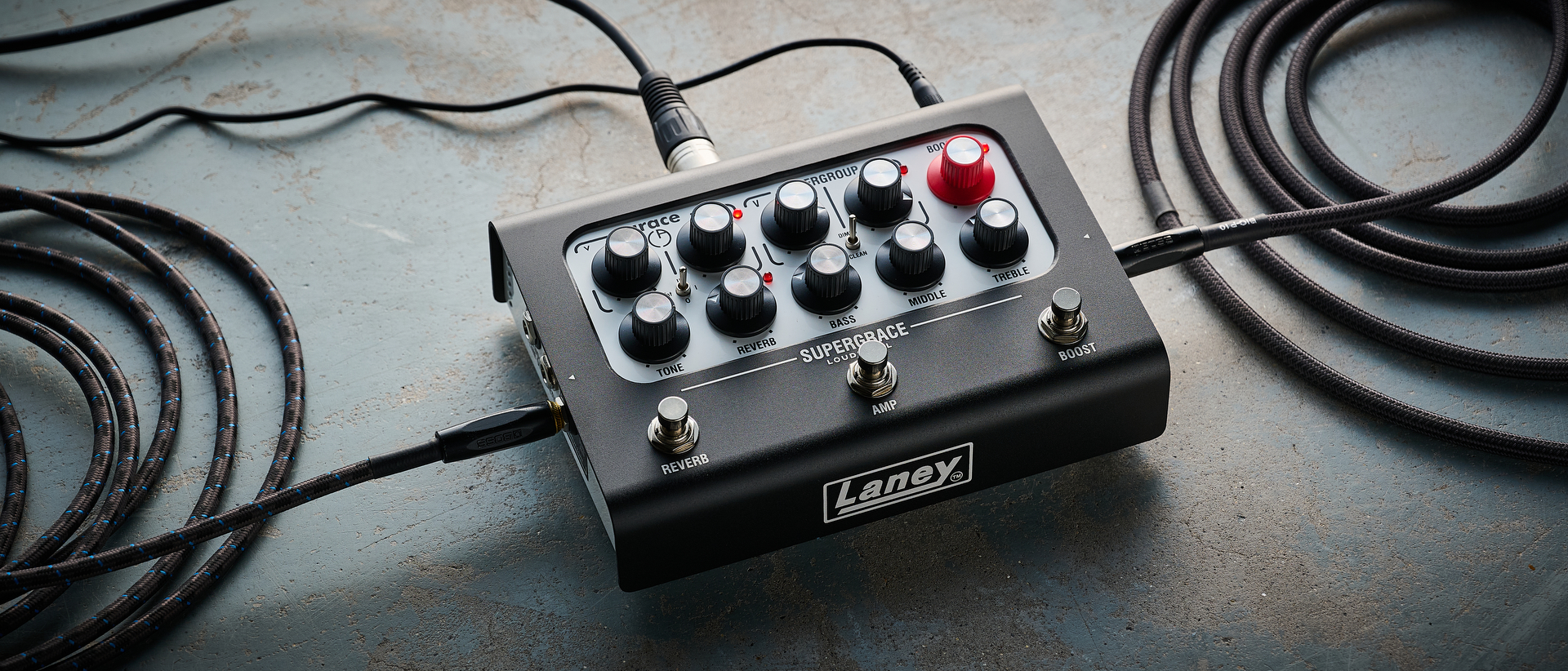“I’ve written most Erra records with a Line 6 Spider. I’m not precious about any gear – the first priority is writing good songs”: Dirty fret choices and weird bends are more important to Jesse Cash than geeking out on gear
New album Cure sees the progressive metalcore outfit working with a producer for the first time to hone their Earth-shattering riffs – it also showcases Cash’s love of Jerry Cantrell’s bending technique, and why he believes string skipping can bypass the need for theory

All the latest guitar news, interviews, lessons, reviews, deals and more, direct to your inbox!
You are now subscribed
Your newsletter sign-up was successful
After five self-produced records, Erra’s knotted progressive metalcore has finally fallen into the clutches of an outside party.
2021’s self-titled LP – their fifth overall – took the band to new heights, complete with their complex and crushing cover of Muse’s Stockholm Syndrome. But with great success comes great pressure.
So with latest album Cure, the band took outside opinion aboard for the first time. “And you can tell,” says guitarist Jesse Cash. “I think it’s much easier to follow – each song lives in a more cohesive world.”
“It wasn’t that we thought something was broken in our music,” he adds. “We were curious what the experience would be like. All our previous records are big juggernauts of content, where there’s a lot to unpack. This record has the same amount of depth, but it’s less overwhelming to the average listener.”
The Alabama outfit’s own-brand musical chaos, then, has gone through a streamlining process. White hot riffs and colossal breakdowns remain, but their structures are far leaner. And their choruses were the first things to be placed in producer Dan Braunstein’s crosshairs.
“When the vocals, guitars, and leads are all busy, it can get pretty jumbled,” says Cash. “Personally, I like having a lot of different layers to listen to in a section – which is why we have such technical songs. But the bigger issue is that you’re more likely to have notes conflicting one another.
“There might be a moment where the guitars and vocals are playing a note a half-step away from each other and it creates these unintentional dissonances. So, whenever we have one busy layer, typically we’re trying to simplify the other layers.”
All the latest guitar news, interviews, lessons, reviews, deals and more, direct to your inbox!
He tracked the bulk of the record on his trusty Ibanez RG2027XL, a 27-inch seven-string loaded with DiMarzio Deactivator humbuckers and an EverTune bridge. Its tones came via Neural DSP plugins and a Quad Cortex; but for Cash that doesn’t matter too much.
“I’m not precious about any gear, to be honest,” he admits. “I value tone: If something sounds off, I want to address it. I’m not complacent, but once I find something that works, I typically stick with it, because gear is a low priority for me.
“I’m not well-versed in the nerdier side of things. For me, the first priority is writing good songs, and I’m fortunate to have people in our inner circle who help me dial in sounds. I’m not afraid to ask for help.
“I've written most Erra records with a Line 6 Spider. I only started working in a DAW with plugins at the end of 2020. Before that it was recording voice memos into my phone. it was very archaic.”
It really depends on the tone I’m trying to get… I’ll play the same riff in different positions on the neck to see what feels right
He argues: “I think if your priority is songwriting, you can get too distracted with the expansiveness of gear and plugins. But if your priority is mixing, then I think you can always keep learning.”
Following a growing trend in modern metal, you’ll often find Cash’s fingers dancing way past the 12th fret. “It’s a sound thing,” he says with conviction, “but it really depends on the tone I’m trying to get out of the riff. I’ll play the same riff in different positions on the neck to see what feels right.
“Cure is a good example: those bends in the intro riff would have a very different feel if they were played two strings up; it would lose some of that heaviness.
“The 24th fret on the seventh string gives it a very specific sound. It almost sounds incorrect to play that high on the neck. It sounds dirty, and that’s exactly the point. It allows us to accentuate that peculiar sound.”
Another nifty trick employed on the album was stolen from a band across the pond. “In the ending of End to Excess we're bending open strings behind the nut on open, and we're also bending out of the third fret,” Cash explains. “It’s not actually a bend, it’s a slide – it just sounds like a bend. I picked it up from Architects’ song Hereafter.
“It sounds so unique. You have to hang on the third fret a bit longer than you think. It’s weird, but if you hit the second or first fret too early or too late, it’s gonna sound out of tune.”
It’s a hugely nuanced trick – but that one change makes all the difference. Cash’s keen ear for detail draws influence from Alice in Chains’ Jerry Cantrell too. “Check My Brain is such a huge influence for my approach to nuanced bends,” he says.
“It’s played on one fret, but there’s so much movement. The amount you’re bending is crucial. It’s very hard to play clean. You could play it on one guitar with a certain string gauge, then play it on another, and it would sound and feel completely different.
“Our song Crawling Backwards out of Heaven is a good example of that. Some of them are starting in a bend and they’re dropping out, but sometimes they’re dropping into the bend. The movement is very particular each time.”
String skipping sort of bypasses the need for theory and helps me find interesting notes
Cash reports that string-skipping is vital for coloring his playing with more curious note choices during his leads. “It makes for more interesting leads, in my opinion, especially if you're playing 16th-note style leads which are very prevalent in metalcore,” he says.
“Some people are good at modes – they know the territories they can go on the neck and be very improvisational. I’m not able to do that. String skipping sort of bypasses the need for theory and helps me find interesting notes.
“I’m just winging it until I hear something I like. It’s based off feel; but it opens the fretboard up for me and makes me feel more creative.”
- Cure is out now via UNFD.
A freelance writer with a penchant for music that gets weird, Phil is a regular contributor to Prog, Guitar World, and Total Guitar magazines and is especially keen on shining a light on unknown artists. Outside of the journalism realm, you can find him writing angular riffs in progressive metal band, Prognosis, in which he slings an 8-string Strandberg Boden Original, churning that low string through a variety of tunings. He's also a published author and is currently penning his debut novel which chucks fantasy, mythology and humanity into a great big melting pot.




